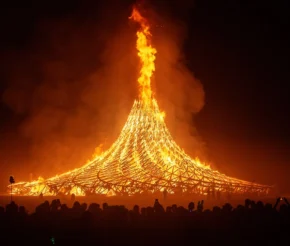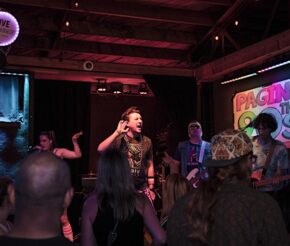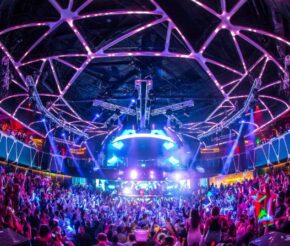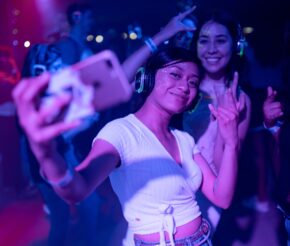- Advertise
-
Subscribe
LGBT+ People Are More Likely To Be Sexually Assaulted

Last year, Ghanaian-British actress and screenwriter Michaela Cole brought the issue of sexual assault in the LGBT+ community crashing onto our TV screens with her provocative series, I May Destroy You.
While the show documented Cole’s struggle with sexual assault on a night out after her drink was spiked, it also featured the rape of a friend, Kwame, during a late-night Grindr hookup.
As a gay black man, Kwame tried to report the crime he had experienced to the police. Unlike Cole’s character, Arabella, he received no support. Belittled and undermined, Kwame watched as Arabella was constantly assured that her rapist would be brought to justice.

It’s about who can be seen as a victim
Reflecting on his character’s struggles, Paapa Essiedu – the actor who played Kwame – discussed how the barriers Kwame faced when trying to get help reflected society’s assumptions about who can be seen as a victim.
“I think it’s a lot about victimhood and who we allow ourselves to see as victims in narratives”
Paapa Essiedu

According to him, the assumption that POC and the LGBT+ communities are not victims but rather “perpetrators” of crime fuels the harsh treatment when trying to access the justice system.
This isn’t just anecdotal – it’s backed up by a whole host of statistical evidence.
LGBT+ individuals are one among the likeliest groups to face sexual violence but among the least likely groups to receive support for it.
The National Coalition of Anti-Violence Projects reported that “44% of lesbians and 61% percent of bisexual women experience rape, physical violence, or stalking by an intimate partner compared to 35% percent of straight women”.
Similarly, “40% of gay men and 47% of bisexual men have experienced sexual violence other than rape, compared to 21% of straight men.”
Queer people have a higher risk of being sexually assaulted
To put it simply, the threat of LGBT+ sexual assault – especially on a night out, as I May Destroy You depicts – is higher for community members.

So why “85% of victim advocates surveyed by the NCAVP report having worked with an LGBT+ survivor who was denied services because of their sexual orientation or gender identity”?
To break down what this means – although queer people are more likely to be sexually assaulted, they’re less likely to be able to access support from services that are supposed to help them deal with this.
The reasons behind this phenomenon are broad and complex. For one, as Essiedu discusses, the LGBT+ community – especially those who are black or from ethnic minorities – are not typically presented as victims of crime in mainstream media.
Instead, they’re often shown as the perpetrators.
When was the last time you saw the rape of a gay man on the news?
Think about it: when was the last time you heard about the rape of a gay or bisexual man making front-page news? LGBT+ sexual assault often goes unreported.
When did a black lesbian get the same coverage as a white straight woman?
The issue is often regarded as a problem for straight, cis people. Anti-sexual assault campaigns like ‘Ask for Angela’ feature only women on their posters.
Although their introduction into clubs is a step in the right direction, it’s difficult not to wonder why efforts couldn’t have been made to target them towards the whole spectrum of club-goers who are at risk on a night out.

And what about discrimination from health professionals themselves? Many societies worldwide have made huge strides towards equality in recent decades, meaning it’s easy to overlook the ingrained biases that persist.
An unnamed lesbian respondent explained in a 2006 study about sexual violence, “It’s more difficult to get recognized as existing when you’re not in a heterosexual relationship.”
The issue is twofold. While queer sexual assaults are more likely to be overlooked and undermined, it is used as an excuse to actively discriminate against victims out of homophobia and prejudice.
Queer people may be less likely to seek help out of shame
If we put aside the question of whether or not a queer person is likely to receive the support they ask for, many don’t request it in the first place because they are uncomfortable talking about their sexual orientation.
As the same study concluded, a queer survivor of sexual assault might be less likely to report it if they’re queer for a whole host of complicated personal reasons:
“[they include] the survivor’s investment in wanting a same-sex relationship as confirmation of their identity and sense of self; their lack of confidence in what behaviours are acceptable in intimate same-sex relationships; and their possible lack of embeddedness in LGBT friendship/community networks.”

Young queer people seeking validation of their sexual orientation might only be starting to explore this part of their identity.
They might feel confused about what same-sex intimacy looks like, about what the power dynamics should be, or what they should expect.
Particularly for young or closeted queer people, they might not have anyone to turn to if something does go wrong.
If they’re newly finding out their sexual orientation or have been made to feel ashamed of it in the past, chances are they won’t have a strong, like-minded community to show them what to expect from a hook-up.
When the LGBT+ community is unheard, survivors of sexual assault remain silenced

While the reasons are complex, the conclusions are simple.
The LGBT+ community is more likely to be missed, overlooked, and undermined by the support services that are tasked with helping them when they’re at their most vulnerable.
The first step to changing this trend is noticing that it’s happening.
As I May Destroy You shows, for as long as the struggles of the LGBT+ community go unheard in mainstream media, survivors of sexual assault remain silenced.
Here’s a list of useful resources:
Let’s Talk About It: A Transgender Survivor’s Guide to Accessing Therapy
National Sexual Assault Hotline – can also refer you to a local rape crisis center 1-800-656-HOPE (4673) 24/7
Online Counselling at https://ohl.rainn.org/online/
Love is Respect Hotline – 1-866-331-99474 (24/7) or Text “loveis” to 22522
The Anti-Violence Project – Hotline 212-714-1124 (Bilingual, 24/7)
LGBT National Help Center – Hotline (1-888-843-4564) or National Youth Talkline (1-800-246-7743)
Online Peer Support Chat or Weekly Youth Chatrooms
The Network La Red – serves LGBT+, poly, and kink/BDSM survivors of abuse (bilingual) – Hotline – 617-742-4911
Northwest Network – serves LGBT survivors of abuse; can provide local referrals Hotline – 206-568-7777





